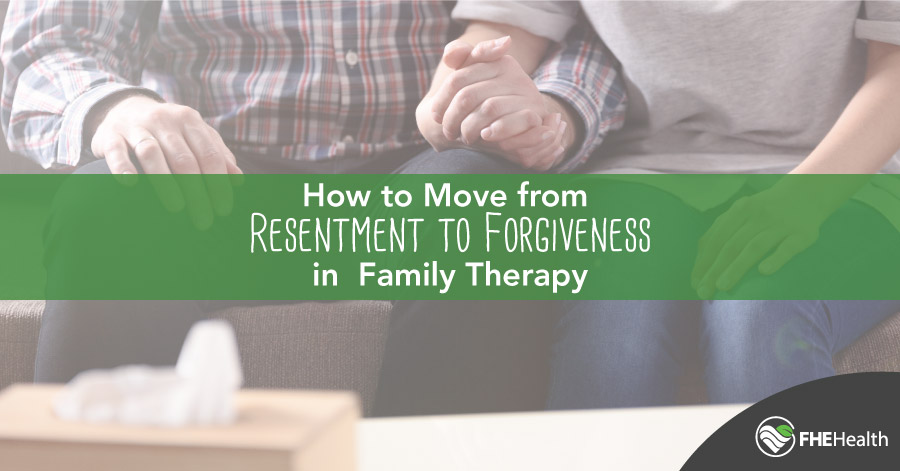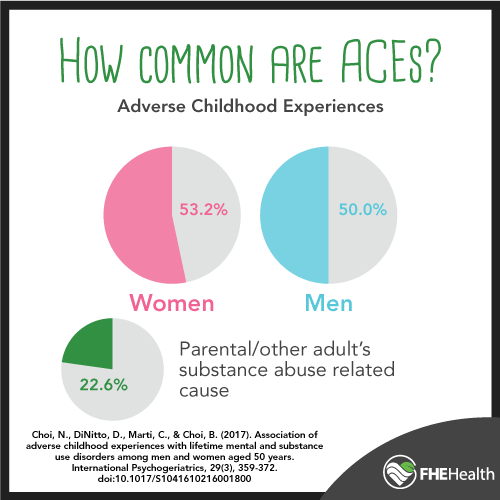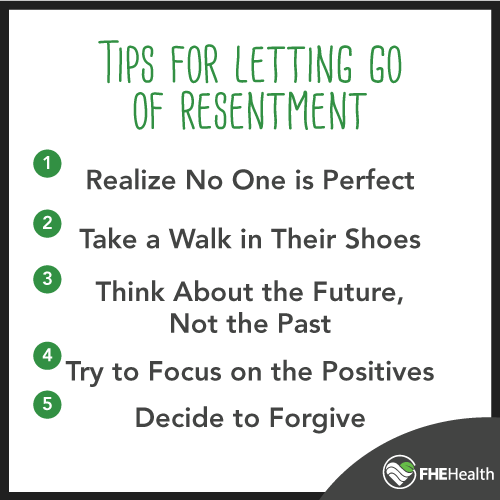
Family therapy can be an effective way to connect with a strong support system during rehab. In many cases, the people who understand the person in recovery are their family members, and those connections can be invaluable in the struggle of lifelong recovery.
But sometimes, relationships with family become strained. If you experienced trauma or instability at home during your childhood and now you’re in recovery, or you grew up around addiction and it led to early drug or alcohol abuse, you may blame these family members for your condition.
In this piece, we’ll talk about why this reaction is completely natural but ultimately an obstacle to successful recovery from drug addiction and mental health issues. Here’s how to forgive your family and rebuild bridges with the people who have the potential to be some of your best resources in recovery.
How Childhood Trauma Affects Adulthood
 Children are fragile, especially during their early development, so it makes sense that any negative experiences they have during their developmental years can be amplified in the form of negative outcomes during adulthood.
Children are fragile, especially during their early development, so it makes sense that any negative experiences they have during their developmental years can be amplified in the form of negative outcomes during adulthood.
This isn’t always true, but as some studies show, there is a strong link between childhood trauma and the development of mental health disorders or substance use issues years later.
Childhood trauma can come from many sources — abuse, neglect, problems at home — but the most common thread between the different sources of trauma is the involvement (or lack thereof) of family in the equation.
As a person begins to analyze how their trauma during childhood has gone on to affect their adult life, especially in cases of addiction, it’s not uncommon for the seeds of resentment to grow. Here are some forms of early trauma for which a person may (rightfully) blame members of their family:
- Neglect at home
- Physical, emotional, or sexual abuse by a family member
- Domestic abuse between parents
- One or more addicted or incarcerated family members
- Divorce
It may be as simple as a person realizing that their issues with substance abuse stem from skipping school and resenting their immediate family for not keeping them focused on their education.
This resentment isn’t always rational, but that doesn’t matter in the scope of treatment for addiction, a mental health disorder or, frequently, a dual diagnosis of both at the same time.
Why You Should Learn to Forgive
Resentment and other feelings of conflict don’t feel good to carry, but there’s more to it than that when it comes to maintaining your health.
According to Johns Hopkins Medicine, bitterness and resentment actually cause a physical reaction similar to stress.
The effects of stress on long-term health have been well-documented. The chemicals that the body releases when under stress can cause higher blood pressure and increased heart rate, increasing a person’s risk levels for heart attack, stroke, and other conditions.
To be clear, the act of letting go of resentment and learning to forgive is more important than just a tool for your physical health, but the dangers of harboring these negative feelings shouldn’t simply be ignored.
Tips for Letting Go of Resentment
There are situations where it may be extremely difficult to forgive those who hurt you. Here are some strategies you can use to try to let go of resentment, creating an enhanced opportunity to use those people as assets and resources in your recovery.
Realize No One Is Perfect
 As you get more life experience under your belt, you’re likely to have a new perspective on your life and those around you. If you’ve already written off certain people close to you, though, it’s unlikely you’ll apply this enhanced perspective to those parties because of something they did in the past to hurt you.
As you get more life experience under your belt, you’re likely to have a new perspective on your life and those around you. If you’ve already written off certain people close to you, though, it’s unlikely you’ll apply this enhanced perspective to those parties because of something they did in the past to hurt you.
This is a recipe for harboring harmful resentment permanently. If a person causes such trauma that you cut them out completely, it’s generally not something easily forgotten. You’ll look back at these negative memories and the resentment will continue to build.
Sometimes it’s simplest to take a few steps back and realize we’re all only human. Everyone makes mistakes, and, frequently, those mistakes cause pain to the people around us.
There’s a reason why forgiveness and making amends are enduring themes in AA and other 12-step groups. The Hazelden Betty Ford Foundation talks about the benefit of leveraging humility and forgiveness on both sides to rebuild bridges with family, friends, and loved ones who could be a force for good in your recovery.
Take a Walk in Their Shoes
Another strategy for forgiveness is to try to imagine the choices that were at the heart of a certain traumatic circumstance. Let’s say, for example, you suffered abuse or neglect as a child because of a parent’s alcoholism. There’s a difference between excusing this behavior and finding it in your heart to forgive.
Addiction is a disease, and the trauma that affected you was a side effect of that person’s sickness, not necessarily a decision they made to hurt you.
Think About the Future, Not the Past
Try to turn resentment into potential. Learning how to forgive is easier when there’s a clear benefit to doing so. Family group meetings and therapy sessions can be hugely beneficial to your recovery, partly because these are people who are most likely to be with you through the entirety of your journey to better mental health or lasting sobriety.
A strong connection with family has the potential to be an enduring asset that you can lean on during your recovery. These people understand you better than others, and that understanding can help you understand your journey. To learn more about getting family involved in recovery, check out this list of useful family therapy groups for the loved ones of addicts.
Try to Focus on the Positives
Family can be a complicated thing. Even when family members or other loved ones hurt you or take advantage of you, it’s likely that there will be love and good memories to hold onto.
Sometimes, the key to forgiveness is simpler than meets the eye. You have to decide to let go of the negative memories and hang on to the positives. Addiction, divorce, incarceration — no matter what’s at the heart of your issues with family, it’s never as simple as it seems. Rather than try to reveal and understand the issues that shaped your life and relationships, try to hold onto the good things.
Decide to Forgive
Sometimes, forgiveness can be as simple as deciding to forgive. Much of recovery is about strength and the power of will. The decision to forgive those who have hurt you and free them of any wrongdoing is an immensely difficult one but one that will benefit you in the long run.
When to Walk Away
Sadly, however, there isn’t always room for forgiveness. If the behavior that negatively affected you as a child is still happening today, the influence of family can be a negative one, even if you choose to forgive.
There’s no dividing line that tells you whether it’s the right situation for forgiveness or not. That’s a judgment you’ll have to make based on the nuanced circumstances in which you find yourself in your recovery.
Moving from Resentment to Forgiveness
It can be a difficult thing to forgive after years of resentment. You may blame certain family members for the situation you find yourself in, and you may or may not be justified in that.
Just remember that resentment is unhealthy, and recovery from addiction or a mental health disorder is easier with as much support as you can gather from all sides. Finding a way to rebuild bridges is always better than leaving them burned, so seize every opportunity to forgive those who have hurt you, no matter how difficult it may be.
Looking for more information on leveraging relationships (especially in the case of family members) to help your recovery? Contact FHE Health (formerly the Florida House Experience) and learn about all the options available to you.






